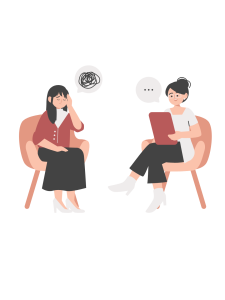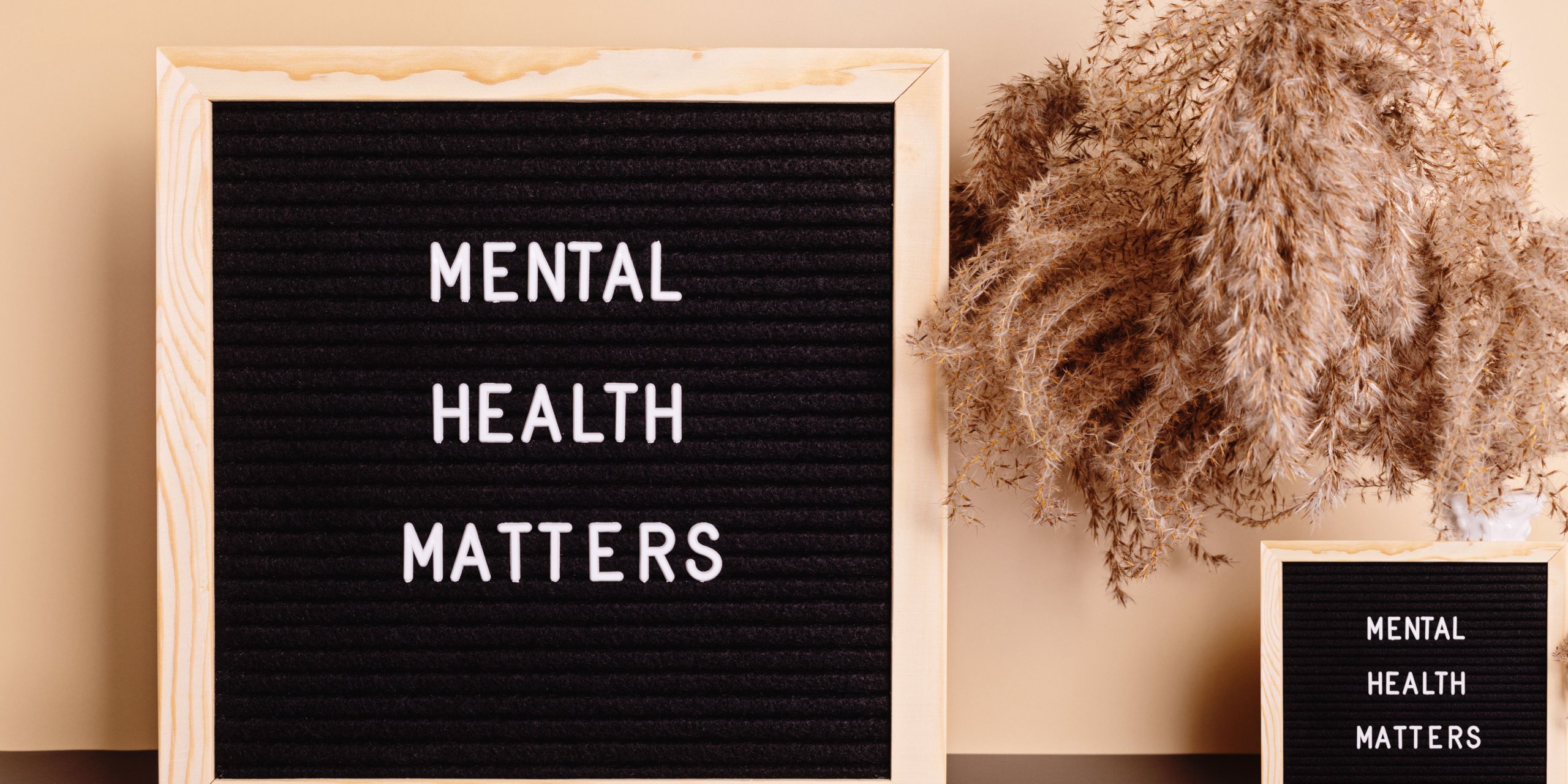
Mental health at work
Oct 2025
The need to prioritise mental health in the workplace has never been clearer. The pandemic, the rise of hybrid working and the increasing blurring of boundaries between work and home have all reshaped the way people experience work and the environments in which they do it.
 The business case is compelling. Deloitte UK estimates that poor mental health costs employers up to £56 billion a year, a staggering 25% increase since 2019. Beyond financial implications, there is the undeniable human cost: employees struggling in silence, creativity being stifled, and teams losing their sense of connection and purpose. A healthy, engaged workforce is not only more resilient but also more creative, collaborative and productive.
The business case is compelling. Deloitte UK estimates that poor mental health costs employers up to £56 billion a year, a staggering 25% increase since 2019. Beyond financial implications, there is the undeniable human cost: employees struggling in silence, creativity being stifled, and teams losing their sense of connection and purpose. A healthy, engaged workforce is not only more resilient but also more creative, collaborative and productive.
The question is: in today’s hybrid world, with employees spread across offices, homes and coworking hubs, how can organisations create the right conditions for good mental health?
Conversations around workplace wellbeing have advanced significantly over the past decade. Awareness is higher than ever, and research shows that nine in tenemployers now consider mental health and wellbeing a priority. This is a huge step forward from the days when the subject was taboo.
Yet awareness alone does not drive change. The challenge now lies in translating good intentions into everyday practices that make a real difference to how people feel and work. That requires rethinking not just policies or benefits but also the physical and cultural environments in which work takes place.
Environment shapes experience. A cluttered, noisy or isolating setting can fuel stress and disengagement, while a thoughtfully designed space can calm, energise and inspire. The psychology of space is increasingly recognised as a key factor in wellbeing and workplaces that fail to take this into account risk undermining their people.
At Collaborate, we see this daily. Coworking and serviced offices are enablers of connection, focus and balance. They can support mental health in ways that can be harder to achieve remotely or within traditional corporate setups.
For example, connection is a powerful antidote to isolation. The Mental Health Foundation recently reported that one in four adults feel lonely some or most of the time Coworking naturally fosters connection by creating opportunities for informal interaction, shared energy and a sense of belonging. This social fabric is vital to maintaining good mental health.
Equally, variety matters. Wellbeing is not one-size-fits-all. Some people thrive in collaborative zones buzzing with energy, while others need quiet corners for focus and recovery. Flexible workspaces that provide both empower individuals to choose what works for them on any given day, helping them stay balanced and effective.
Design also plays a pivotal role. Natural light, greenery, comfortable furniture and inspiring interiors can reduce stress and boost mood. Small details, such as calming colour palettes, ergonomic setups or access to outdoor spaces, make a big difference to how people feel. At Collaborate, these elements are woven into our workspaces to create environments that support both productivity and wellbeing.
Connection also plays a central role. Shared experiences, whether through team days in coworking spaces, informal meet-ups or collaborative sessions, help strengthen relationships and reduce the sense of isolation that hybrid work can sometimes bring. Balance matters too. When individuals feel trusted to manage their time and energy in ways that work best for them, they’re more likely to thrive both personally and professionally.
At Collaborate, we aim to make these positive habits easier to sustain by providing spaces designed with wellbeing at their heart. Our environments bring together community, flexibility and thoughtful design to help people feel connected, supported and able to do their best work.
As hybrid working becomes the long-term reality, the organisations that thrive will be those that view mental health as a strategic priority. The spaces where employees work will continue to play a defining role in how supported they feel, how connected they remain and how effectively they can contribute.
This World Mental Health Day is an important reminder that wellbeing at work doesn’t happen by accident. It requires intentional choices about culture, about policies and about the spaces where people come together to collaborate and create.
At Collaborate, we remain committed to designing and curating workspaces that put people first. Because when mental health is supported businesses unlock their full potential. Discover how a thoughtfully designed workspace can enhance wellbeing and performance and enquire today to learn more about joining the Collaborate community.
 The business case is compelling. Deloitte UK estimates that poor mental health costs employers up to £56 billion a year, a staggering 25% increase since 2019. Beyond financial implications, there is the undeniable human cost: employees struggling in silence, creativity being stifled, and teams losing their sense of connection and purpose. A healthy, engaged workforce is not only more resilient but also more creative, collaborative and productive.
The business case is compelling. Deloitte UK estimates that poor mental health costs employers up to £56 billion a year, a staggering 25% increase since 2019. Beyond financial implications, there is the undeniable human cost: employees struggling in silence, creativity being stifled, and teams losing their sense of connection and purpose. A healthy, engaged workforce is not only more resilient but also more creative, collaborative and productive.
The question is: in today’s hybrid world, with employees spread across offices, homes and coworking hubs, how can organisations create the right conditions for good mental health?
From awareness to action
Conversations around workplace wellbeing have advanced significantly over the past decade. Awareness is higher than ever, and research shows that nine in tenemployers now consider mental health and wellbeing a priority. This is a huge step forward from the days when the subject was taboo.
Yet awareness alone does not drive change. The challenge now lies in translating good intentions into everyday practices that make a real difference to how people feel and work. That requires rethinking not just policies or benefits but also the physical and cultural environments in which work takes place.
The role of space in supporting mental health
Environment shapes experience. A cluttered, noisy or isolating setting can fuel stress and disengagement, while a thoughtfully designed space can calm, energise and inspire. The psychology of space is increasingly recognised as a key factor in wellbeing and workplaces that fail to take this into account risk undermining their people.
At Collaborate, we see this daily. Coworking and serviced offices are enablers of connection, focus and balance. They can support mental health in ways that can be harder to achieve remotely or within traditional corporate setups.
For example, connection is a powerful antidote to isolation. The Mental Health Foundation recently reported that one in four adults feel lonely some or most of the time Coworking naturally fosters connection by creating opportunities for informal interaction, shared energy and a sense of belonging. This social fabric is vital to maintaining good mental health.

Equally, variety matters. Wellbeing is not one-size-fits-all. Some people thrive in collaborative zones buzzing with energy, while others need quiet corners for focus and recovery. Flexible workspaces that provide both empower individuals to choose what works for them on any given day, helping them stay balanced and effective.
Design also plays a pivotal role. Natural light, greenery, comfortable furniture and inspiring interiors can reduce stress and boost mood. Small details, such as calming colour palettes, ergonomic setups or access to outdoor spaces, make a big difference to how people feel. At Collaborate, these elements are woven into our workspaces to create environments that support both productivity and wellbeing.
Making wellbeing intentional
Supporting mental health in hybrid settings takes conscious effort and it often starts with small, consistent actions. When wellbeing is woven naturally into the fabric of an organisation it becomes part of everyday life at work. A culture that genuinely values people’s mental health is reflected in how teams communicate, how leaders show care and how colleagues look out for one another. Regular check-ins, open conversations and a willingness to listen can make a meaningful difference to how supported people feel.Connection also plays a central role. Shared experiences, whether through team days in coworking spaces, informal meet-ups or collaborative sessions, help strengthen relationships and reduce the sense of isolation that hybrid work can sometimes bring. Balance matters too. When individuals feel trusted to manage their time and energy in ways that work best for them, they’re more likely to thrive both personally and professionally.
At Collaborate, we aim to make these positive habits easier to sustain by providing spaces designed with wellbeing at their heart. Our environments bring together community, flexibility and thoughtful design to help people feel connected, supported and able to do their best work.
The future of work and wellbeing
As hybrid working becomes the long-term reality, the organisations that thrive will be those that view mental health as a strategic priority. The spaces where employees work will continue to play a defining role in how supported they feel, how connected they remain and how effectively they can contribute.
This World Mental Health Day is an important reminder that wellbeing at work doesn’t happen by accident. It requires intentional choices about culture, about policies and about the spaces where people come together to collaborate and create.
At Collaborate, we remain committed to designing and curating workspaces that put people first. Because when mental health is supported businesses unlock their full potential. Discover how a thoughtfully designed workspace can enhance wellbeing and performance and enquire today to learn more about joining the Collaborate community.
